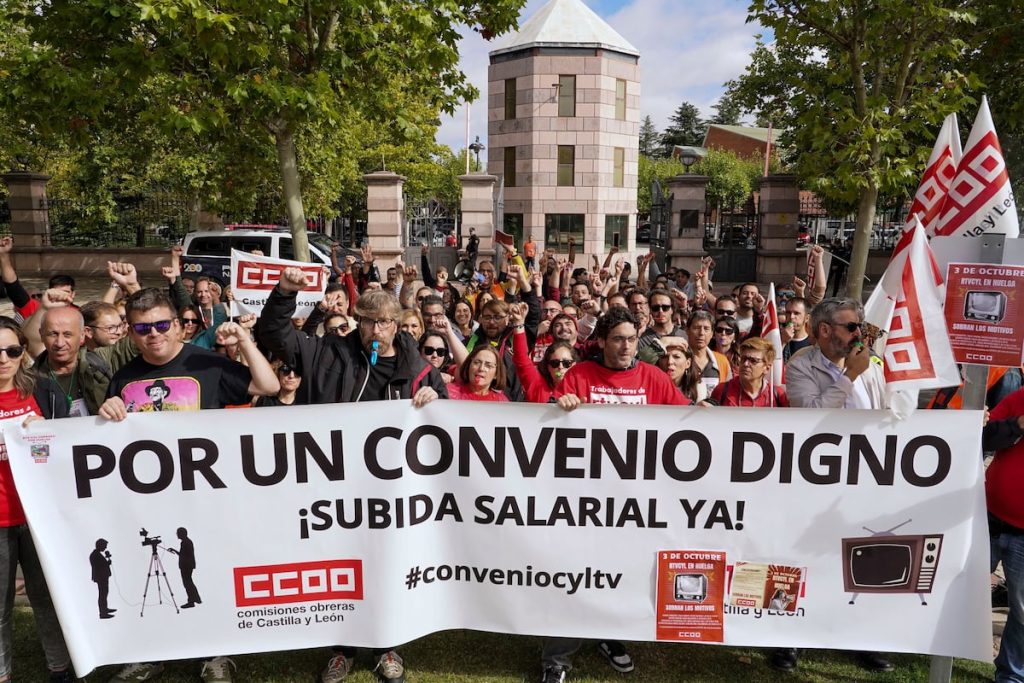The staff of the regional radio and television station of Castilla y León, which is contracted to private companies but receives an annual subsidy of 21.3 million euros in public funds, is participating in a majority strike on Friday to improve their working conditions. This is the second strike since workers have decided to intensify their protests against their salary, professional situation, and working hours, among other demands. The strike coincides with the opening day of the Seminci film festival in Valladolid, an important event for the city that is usually extensively covered by the regional television. The general secretary of the labor union Comisiones Obreras, Unai Sordo, has announced his presence at the protest alongside the theater where the film festival is taking place.
The protests have included gatherings outside the provincial offices of the regional radio and television stations, where dozens of employees have gathered to show their frustration. The main focus of the protest will be their presence in the afternoon at the Calderón Theater in Valladolid, where they aim to make their demands visible to the public and to the individuals from the cultural, film, and political spheres gathered for the Seminci. The previous strike day on October 3 coincided with the inauguration of the new season of the regional television and saw a high level of participation, especially in Valladolid, where the majority of the staff is located. During the first strike day, the news broadcasts were significantly reduced, with some segments lacking content and few professionals presenting them.
The affected employees, such as committee member Marcos Sacristán, complain that “after nine months of negotiations, the company has not moved from a 1.5% salary increase” and has failed to reach the minimum standards required for professionals, with average salaries ranging from 1,200 to 1,400 euros regardless of their qualifications, experience, or additional benefits. They also denounce the working hours, which make it difficult to balance work and personal life due to split shifts with outdated equipment and minimal updates. Sacristán states that since the first strike date, there have been no new proposals from the company.
Jorge Losada, the director general of the Castilla y León television, states that “there has been no communication between the unions and the company” and “neither from the company to the unions.” Losada recalls that before the first strike day, the worker representatives and company delegates agreed on conditions that were rejected when voted on by the staff: they mostly declined a bonus of 500 euros in the first year and 850 in the second year. The amounts equate to an additional 35.71 and 60.71 euros monthly, which the potential beneficiaries consider insufficient. The aggrieved employees criticize that this regional service is not truly public, as it is operated by two media conglomerates linked to construction entrepreneurs associated with the People’s Party.
The corporation receives an annual subsidy of 21.3 million euros for its operations. The officials of the Castilla y León government argue that this is a conflict in which the regional government has no responsibility, as they see it as a dispute between a company and its staff, without the involvement of the government. General Secretary of Comisiones Obreras, Unai Sordo, who has family roots in Valladolid, has announced that he will attend the protest of the staff outside the Calderón Theater on Friday afternoon.


